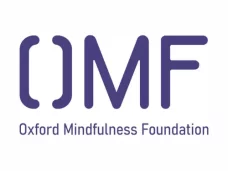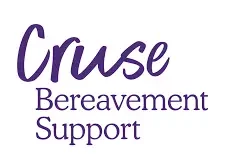In this blog I critically analyse the Humanistic Person-Centred Approach's theoretical foundation with consideration given to some of the key criticisms of the approach. I write about my personal Person-Centred therapeutic experience to illustrate the approach and the impact it has had on me philosophically, subsequently giving details of how I apply the PCA in my practice. Following this, I reflect on Focusing-Oriented Therapy and integrating it into my practice. Finally, I look at recent research into the PCA and evaluate its efficacy within the contemporary therapeutic context.
In the 1940s, Carl R. Rogers (1951) began to change the politics of counselling and psychotherapy. Rogers (1978) rejected the medical model of the day and moved the focus of counselling practice from patients who had a 'problem to be solved' to clients whom he acknowledged as individuals with the emphasis on holism and valuing of the clients' phenomenological subjective experiences. The foundation on which Rogers (1951) built the PCA is the Actualising Tendency. This is the notion that there is a drive to fulfil potentialities within every organism to become all that it can be and is "considered to be the sole motivation for human development and behaviour" (Merry, 2002, p 21).
In developing the PCA, Rogers (1980, p115) found, through research (Rogers, 1957 and 1959) and personal experience, that when clients who are in psychological distress are offered a "definable climate of facilitative psychological attitudes", then they access their resources for self-understanding, self-awareness and for altering self-concept, attitudes, and self-directed behaviour. This specific environment that must be offered to clients is defined in the '6 necessary and sufficient conditions for therapeutic change' (Merry, 2002: p 49), and these relate to the state that the client and counsellor must be inhabiting, and precisely the 'way of being' of the counsellor. Rogers (1961) emphasised counsellor transparency and realness in the therapeutic relationship, warmth and prizing, and an accepting, non-judgmental stance referred to in the PCA as congruence, empathy, and unconditional positive regard. A persistent criticism of the PCA has been that no counsellor can inhabit and express this ‘way of being’ as detailed in Rogers’s writings (Masson, 1988). However, Rogers (1978) was clear that he was not expecting perfection, just that it is necessary for these six conditions to be present most of the time or else constructive client change would be less likely.
In offering these facilitative conditions, in the PCA, the counsellor is non-directive. As Rogers (1978, p14) states, "the politics of the client-centred approach is a conscious renunciation and avoidance by the therapist of all control over or decision-making for the client". Rogers (cited in Merry, 2002) specifies in his second condition that the client must be incongruent, that is, in an anxious or vulnerable psychological state. In the PCA, this incongruence is caused by the Conditions of Worth. These are states of being that the organism has grown to believe must be met to garner positive regard from significant others. Proctor (2002: p 107), in explaining Conditions of Worth, writes:
It is a radical theory and is heretical to psychiatric understanding of mental illness. The theory of psychological distress is based on internalised oppression, and the effect of person-centred therapy is to reduce the power that others have over clients and thus increase their sense of personal power.
The PCA’s fundamental aim is to facilitate autonomy and empowerment and to allow this, the client must feel that they are the agent for change in their own lives (Rogers, 1978). However, it is helpful for the Person-Centred counsellor if, whilst maintaining the six conditions, they also believe in the client’s actualising tendency, this being the foundation of the PCA, and that every client is at their core good (Rogers, 1978).
To illustrate the PCA in action, I have outlined a summary of my personal counselling journey below.
With my Person-Centred counsellor, I am working to free myself from the oppressive effects of my conditions of worth. Internalised oppression, for me, is mainly related to internalised misogyny, specifically around internalised messages about girls being stupid and women only serving three purposes (mother, wife, or whore). With the support of my Person-Centred counsellor, I am working to expose operations of power and resist the social norms (Proctor, 2002:) of my day. Bringing awareness to my truth and growing to accept all parts of self, as Kierkegaard said (1941, p29), "to be that self which one truly is", I am reconstituting myself in ways that benefit me, the organismic self. As my sense of self-agency and confidence grows, as past traumas no longer define or control me, I am gradually reducing the power others have had in "inculcating guilts and fears and inhibitions" (Rogers, 1978: p12). While I am growing to understand and have control over myself, I experience this as a fluid, ongoing process of change, developing self-awareness, personal power, and personal agency.
Philosophically the PCA synchronises with my own Humanist, liberal, feminist beliefs. Thus, in inhabiting the '6 necessary and sufficient conditions needed for therapeutic change to occur', I can work as a counsellor in a way that concurs with my moral compass and philosophical beliefs, including honouring my clients' right to personal autonomy and self-determination. I have a radical trust in my client's ability to know what they need to heal. I also know that there is inherent healing power in the therapeutic alliance between my client and me. This therapeutic alliance is a safe, protected space for my clients where they feel heard, held, and valued and where they can consider and process their own needs, meanings, and feelings. Ultimately, I choose to be a Person-Centred counsellor and apply the PCA in my counselling work because of its non-directivity and unquestioning respectful deference to the client’s inherent self-agency. I have experienced in my practice how effective the PCA is in ameliorating distress and empowering clients to grow, develop and change.
A persistent criticism of the PCA has been that it lacks structure and technique (Mearns and Thorne, 2013), and whilst these critics fail to understand the ethos of the approach: with its focus on the quality of the therapeutic alliance and the client's experience of themselves (Cooper et al., 2013), developments over the last 70 years have added more structure and technique to the approach, such as Focusing-Oriented Therapy, Experiential Person-Centred Therapy (Sanders, 2012), and Counselling for Depression (CfD).
Eugene Gendlin developed Focusing-Oriented Therapy when working with Rogers and associates at the University of Chicago in the 1950s. Their research focused on what made for positive outcomes for clients from their counselling experience (Purton, 2012). Purton (2007; p10) writes that Gendlin's central philosophical concern was "how our 'experiencing' is related to our 'concepts'". Their findings and research by Orlinsky et al. (1994 cited in Purton, 2007) evidence that what clients talk about does not make much difference to the counselling outcome. What Rogers, Gendlin and associates found instead was that the way that clients spoke made the most significant difference in outcomes. Purton (2007; p14-15) writes that their research showed that therapeutic outcomes for clients were more successful when they sought
further, more elaborate, or more specific forms of response to their situation. It is this practice of finding and staying with the FELT SENSE of our situation that Gendlin called Focusing.
Focusing helps both the client and the counsellor connect with issues, truths, and feelings at the 'edge of awareness' for the client, with Gendlin (1996: p 240) describing this as the felt sense that "forms at the border zone between conscious and unconscious". I have used Focusing-Oriented therapy in bereavement counselling and believe this has enhanced my counselling practice because it supports the client in a greater understanding of self and helps them feel more connected with and understood by me. It seemed intuitive to integrate something like focusing into my practice because, in my personal counselling, I have learnt how my thoughts and feelings are connected to sensations within my body and, subsequently, how to listen more holistically to my body. Focusing feels like a process of slowing down, grounding the client, and then supporting the client as we use Focussing to shine a light onto a significant theme until they get a 'felt sense' from their body.
In evaluating the efficacy of the PCA within the contemporary therapeutic British context, I found reliable evidence that Humanistic and experiential therapies, such as the PCA, show similar outcomes to other therapies, such as Cognitive Behavioural Therapy (CBT) (Pybis et al. 2017). Additionally, a meta-analysis of research into the effectiveness of the PCA carried out by Elliott and Freire (2008, cited in Cooper, Watson and Hölldampf, 2012) also evidences that the PCA is at least as effective as Cognitive Behavioural Therapy. However, I hypothesise that because most PCA research, such as that evidenced in this meta-analysis, is qualitative, it often has little influence on UK governmental health care decisions because of the bias towards quantitative research findings by scientific review panels and organisations like the National Institute for Health and Care Excellence (NICE). Elliott and Freire (2008, cited in Cooper, Watson and Hölldampf, 2012) also found that many of the research studies into the PCA that they could source for their meta-analysis were not randomised, which is problematic because this potentially limits the impact of these research studies: Randomised Control Trials being considered the Gold Standard for research. Further investigation of the status of the PCA within the contemporary British therapeutic context evidences that the PCA is not as highly regarded as other approaches, especially CBT (Tolin, 2010). For example, CBT is the dominant counselling approach within the British National Health Service because of NICE (2011) guidelines. I theorise that this is because CBT has produced vast amounts of quantitative research findings that evidence its efficacy (Hofmann et al., 2012).
In concluding, I posit that Carl Rogers can be considered a social revolutionary, with his PCA having a lasting positive impact on how mental health is perceived by society and on how individuals experiencing psychological distress are treated. Rogers’s PCA was part of a social shift whereby individuals with mental health issues were no longer seen simply as deranged patients with an illness that needed to be fixed by a superior expert; they were now seen as clients who, at their core, were good individuals, and who if offered the PCA’s facilitative therapeutic conditions, as described in this essay, would know what they needed to heal and would grow and change and heal themselves. This radical, anti-oppressive, empowering approach gave individuals experiencing psychological distress the respect and autonomy they deserved. This had been lacking from the medical model of treatment for mental health conditions and from previous therapeutic approaches, such as Freud’s Psychoanalysis. Power imbalances within healthcare, whilst perhaps subtler and with contemporary foci, remain today. I believe therefore that the Person-Centred Approach is as relevant today as it was when Rogers first developed it in the 1950’s.
Bibliography
Cooper, M. et al (2013) The Handbook of Person-Centred Psychotherapy and Counselling.2nd Ed. Basingstoke. Palgrave Macmillan.
Cooper, M. Watson, J. C. Hölldampf, D. (2012) Person-Centred and Experiential Therapies Work. Ross-on-Wye. PCCS BOOKS.
Gendlin, E. T. (1996) Focusing-Oriented Psychotherapy. USA. The Guildford Press.
Hofmann, S. G. et al. (2012) ‘The Efficacy of Cognitive Behavioral Therapy: A Review of Meta-analyses’. Cognitive therapy and research vol. 36, 5: 427-440. doi:10.1007/s10608-012-9476-1
Kierkegaard, S. (1941) The Sickness Unto Death. USA. Princeton University Press.
Masson, J. M. (1988) Against Therapy. London. Flamingo.
Mearns, D. & Thorne, B. & McLeod (2013) Person-Centred Counselling in Action. 4th Ed. London. SAGE.
Merry, T. (2002) Learning and Being in Person-Centred Counselling. 2nd Ed. Ross-on-Wye. PCCS Books.
NICE (2011) Common Mental Health Problems: Identification and Pathway to Care. CG123. Available at: https://www.nice.org.uk/guidance/CG123/chapter/1-Guidance#steps-2-and-3-treatment-and-referral-for-treatment (Accessed 27th April 2022).
Pybis, J. et al. (2017) ‘The comparative effectiveness and efficiency of cognitive behaviour therapy and generic counselling in the treatment of depression: evidence from the 2nd UK National Audit of psychological therapies’. BMC Psychiatry vol 17, p 215. https://doi.org/10.1186/s12888-017-1370-7
Proctor, G. (2002) The Dynamics of Power in Counselling and Psychotherapy. Monmouth. PCCS Books Ltd.
Purton, C. (2007) The Focusing-Oriented Counselling Primer. 2nd Edn. UK. PCCS Books Ltd.
Purton, C. (2012) ‘Focusing-Oriented Therapy’ in Sanders, P. ed. The Tribes of the Person-Centred Nation: an Introduction to the Schools of Therapy Related to the Person-Centred Approach. 2nd Ed. Ross-on-Wye. PCCS Books. pp 47-70
Rogers, C. R. (1957) ‘The necessary and sufficient conditions of therapeutic personality change.’ Journal of Consulting Psychology, vol 21(2), pp 95 - 103.
https://doi.org/10.1037/h0045357
Rogers, C. R. (1959) ‘A Theory of therapy, personality, and interpersonal relationships, as developed in the client-centered framework’ Psychology: A Study of a Science. Vol 3. New York. McGraw-Hill. pp 184-256
Rogers, C. R. (1978) Carl Rogers on Personal Power, Inner Strength, and Its Revolutionary Impact. GB. Constable and Company Ltd.
Rogers, C. R. (1951) Client-Centred Therapy. UK. Constable and Company Ltd
Rogers, C. R. (1961) On Becoming A Person. London. Constable & Robinson Ltd
Rogers, C. R. (1980) A Way of Being. Boston. Houghton Mifflin
Sanders, P., Baker, N. (2012) The Tribes of the Person-Centred Nation: an Introduction to the Schools of Therapy Related to the Person-Centred Approach. 2nd Ed. Ross-on-Wye. PCCS Books.
Sanders, P. (2012) ‘Mapping Person-Centred Approaches to Counselling and Psychotherapy’ in ed Sanders, P. The Tribes of the Person-Centred Nation: an Introduction to the Schools of Therapy Related to the Person-Centred Approach. 2nd Ed. Ross-on-Wye. PCCS Books. pp 233-246
Tolin, D. F. (2010) ‘Is cognitive-behavioral therapy more effective than other therapies? A meta-analytic review’. Clin Psychol Rev. Aug;30(6):710-20. doi: 10.1016/j.cpr.2010.05.003. Epub 2010 May 25. PMID: 20547435.










